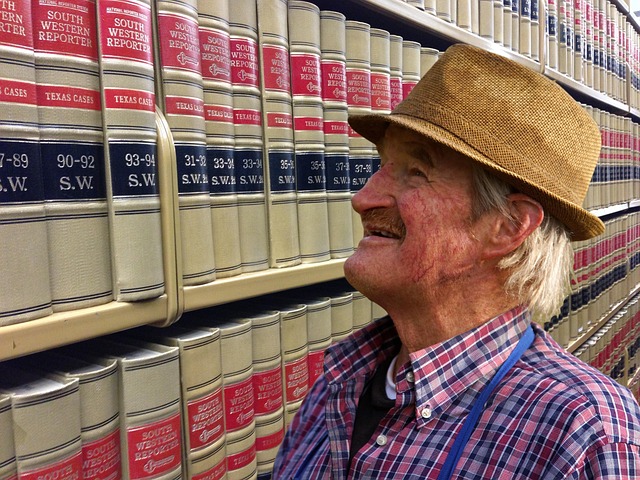Oregon's Juvenile Justice System, guided by the Oregon juvenile guide, prioritizes rehabilitation and reintegration over punishment for minors. Confidentiality is paramount, with fair treatment ensured through legal counsel, hearing rights, and protection from self-incrimination. Alternatives to incarceration, like community programs, counseling, and diversion options, address root causes of delinquency. Public defenders play a crucial role in advocating for youth rights and pursuing favorable outcomes. Alternative dispute resolution methods foster open communication and skill development. The Oregon Youth Authority offers specialized programs to divert youth, reduce recidivism, and support successful transitions into adulthood.
“Discover a comprehensive Oregon juvenile guide on navigating the state’s unique legal defense system. This article delves into key aspects of juvenile justice, empowering parents and guardians with insights on their child’s rights. From understanding the Oregon justice system to exploring alternative dispute resolution and rehabilitation programs, we cover all bases. Learn about the critical role of public defenders and gain valuable knowledge to support young individuals facing legal challenges in Oregon.”
- Understanding Oregon's Juvenile Justice System
- Rights of Juvenile Defendants: A Comprehensive Guide
- The Role of Public Defenders in Juvenile Cases
- Alternative Dispute Resolution Options for Juveniles
- Rehabilitation and Reintegration Programs in Oregon
Understanding Oregon's Juvenile Justice System

Oregon’s Juvenile Justice System is designed to handle cases involving minors, focusing on rehabilitation and reintegration rather than punishment. This system operates under the belief that young people are still developing and deserve a chance to learn from their mistakes. Unlike adult courts, juvenile court proceedings prioritize confidentiality, aiming to protect the privacy of young individuals and their families.
The Oregon juvenile guide outlines procedures that ensure fair treatment for minors, including access to legal counsel, the right to a hearing, and protection from self-incrimination. This system emphasizes alternatives to incarceration, such as community-based programs, counseling, and diversion options. By implementing these measures, Oregon strives to address the underlying causes of juvenile delinquency while promoting positive growth and successful reentry into society.
Rights of Juvenile Defendants: A Comprehensive Guide

In Oregon, juvenile defendants have specific rights that are designed to protect their interests and ensure fair treatment within the legal system. These rights form a comprehensive guide for both youth and their legal representatives. First, all juveniles are entitled to counsel, ensuring they understand their legal options and can navigate complex procedures effectively. This right to an attorney includes the possibility of public defenders or privately retained lawyers, catering to individual needs and financial circumstances.
Additionally, Oregon law guarantees juveniles the right to a fair and impartial trial, with specific considerations for their age and developmental stage. This includes the exclusion of certain evidence that might be unfairly prejudicial and protection from harsh sentencing. The goal is to rehabilitate, not merely punish, reflecting a balanced approach to juvenile justice in Oregon.
The Role of Public Defenders in Juvenile Cases

In Oregon, public defenders play a pivotal role in ensuring fair legal representation for juveniles. These attorneys are a cornerstone of the state’s juvenile justice system, providing essential legal guidance and advocacy for young people facing criminal charges. The Oregon juvenile guide emphasizes the importance of specialized legal assistance tailored to the unique needs of minors.
Public defenders navigate complex legal processes, offering invaluable support throughout the entire case. They aim to protect the rights of their young clients while also considering the best interests of the child. By employing strategic defenses and negotiating with prosecutors, these defenders strive to achieve the most favorable outcomes, which may include diversion programs or alternative sentencing options designed to aid in a youth’s rehabilitation rather than solely focusing on punishment.
Alternative Dispute Resolution Options for Juveniles

In Oregon, alternative dispute resolution (ADR) options play a significant role in juvenile legal defense, offering a more tailored and potentially less intimidating approach to resolving cases. ADR methods such as mediation and restorative justice are increasingly used to address youth offenses, focusing on rehabilitation and community reintegration rather than solely on punishment. These processes encourage open communication between the involved parties, including juveniles, parents, and prosecutors, fostering an environment that promotes understanding and cooperation.
The Oregon juvenile guide emphasizes the benefits of ADR by reducing the number of cases proceeding to formal court hearings, which can be stressful for young individuals. By participating in these alternative programs, youths are more likely to take responsibility for their actions while gaining valuable skills in conflict resolution and emotional regulation. This not only supports their long-term development but also contributes to a more effective and compassionate criminal justice system tailored to the unique needs of Oregon’s juvenile population.
Rehabilitation and Reintegration Programs in Oregon

Oregon’s juvenile legal defense system recognizes the importance of rehabilitation and reintegration as key aspects of youth justice. The state offers a range of specialized programs designed to address the unique needs of young offenders, focusing on skill development, education, and social support. These initiatives aim to divert youth from the criminal justice system, reduce recidivism rates, and foster successful transitions into adulthood.
One notable aspect is the Oregon Youth Authority (OYA), which implements various residential and community-based programs. These include educational services, vocational training, mental health support, and substance abuse treatment. By providing comprehensive care and individualized guidance, OYA helps juvenile offenders regain a sense of stability, develop positive coping mechanisms, and reintegrate into their communities. The Oregon juvenile guide emphasizes these rehabilitative measures as vital components in shaping the future of at-risk youth.
